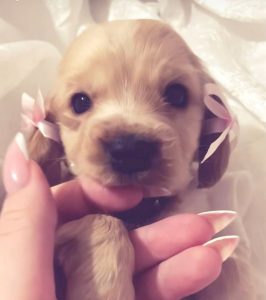Dogs often experience heightened stress and anxiety during events like fireworks or thunderstorms. These loud, unpredictable noises can be frightening for them. As a responsible pet owner, there are several strategies you can employ to help your dog feel more secure and comfortable during these stressful times. Here’s a comprehensive guide on how to manage and reduce your dog’s anxiety during special events.
1. Understanding Canine Anxiety
– Recognizing Signs of Anxiety:
- Symptoms include panting, trembling, pacing, hiding, whining, drooling, and sometimes destructive behavior. Identifying these signs early can help you take appropriate action.
– Common Triggers:
- Loud noises such as fireworks, thunderstorms, and even loud gatherings can trigger anxiety in dogs. Understanding these triggers allows for better preparation.
2. Preparing Ahead of Time
– Create a Safe Space:
- Designate a quiet, comfortable area in your home where your dog can retreat. This could be a specific room or a crate covered with a blanket to create a den-like environment.
– Desensitization Training:
- Gradually expose your dog to recorded sounds of fireworks or thunderstorms at a low volume, increasing it slowly over time while offering treats and praise. This can help them get used to the noise.
– Routine Maintenance:
- Keep your dog’s routine as consistent as possible during these events. Regular feeding, walks, and playtime can provide a sense of normalcy and security.
3. During the Event
– Stay Calm and Composed:
- Dogs often pick up on their owner’s emotions. Remaining calm and composed can help your dog feel more secure.
– Use Calming Aids:
- Products like anxiety wraps (e.g., Thundershirt), pheromone diffusers, or natural supplements can provide comfort. Consult with your vet for the best options.
– Background Noise:
- Play calming music, white noise, or keep the TV on to help drown out the loud noises. This can create a more soothing environment.
– Distraction Techniques:
- Engage your dog with toys, games, or training exercises to keep their mind off the stressful noises. Puzzle toys and long-lasting chews can be particularly effective.
4. Comfort and Reassurance
– Stay Close:
- Being near your dog can provide reassurance. Gentle petting and speaking in a soothing voice can help calm them down.
– Avoid Reinforcing Fear:
- While it’s important to comfort your dog, be mindful not to overly reinforce fearful behavior. Reward calm behavior instead.
5. Post-Event Care
– Monitor Behavior:
- After the event, monitor your dog for any lingering signs of stress or anxiety. Provide extra comfort and reassurance if needed.
– Re-establish Routine:
- Return to your normal routine as soon as possible to help your dog regain a sense of normalcy.
6. Long-Term Strategies
– Behavioral Training:
- Work with a professional dog trainer or behaviorist if your dog’s anxiety is severe. They can offer personalized strategies and techniques.
– Regular Exercise:
- Regular physical activity can help reduce overall anxiety levels. A tired dog is generally more relaxed and less prone to stress.
– Diet and Health:
- Ensure your dog is on a balanced diet and is in good health. Sometimes, underlying health issues can exacerbate anxiety.
Conclusion
Managing your dog’s stress and anxiety during special events like fireworks or thunderstorms requires a combination of preparation, calming techniques, and reassurance. By creating a safe environment, using calming aids, and maintaining a calm demeanor, you can help your dog navigate these stressful situations more comfortably. Remember, each dog is unique, so it may take some time to find the most effective strategies for your furry friend.
FAQs
1. Can I give my dog medication for anxiety during fireworks or thunderstorms?
- Yes, in some cases, your vet may prescribe anti-anxiety medication or sedatives for your dog. Always consult your vet before giving your dog any medication.
2. How can I tell if my dog is anxious during loud events?
- Signs of anxiety include panting, trembling, hiding, excessive barking, pacing, and destructive behavior. Observing your dog’s body language and behavior can help you identify anxiety.
3. Are there any natural remedies to calm my dog during thunderstorms?
- Natural remedies such as CBD oil, chamomile, valerian root, and pheromone diffusers can help reduce anxiety. Consult with your vet before using any natural supplements.
4. Should I crate my dog during fireworks or thunderstorms?
- If your dog finds comfort in their crate, it can be a safe haven during stressful events. Ensure the crate is covered with a blanket to create a den-like environment and is located in a quiet area of the house.
5. How long does it take for desensitization training to work?
- Desensitization training can take several weeks to months, depending on your dog’s level of anxiety and consistency in training. Patience and gradual exposure are key to success.


